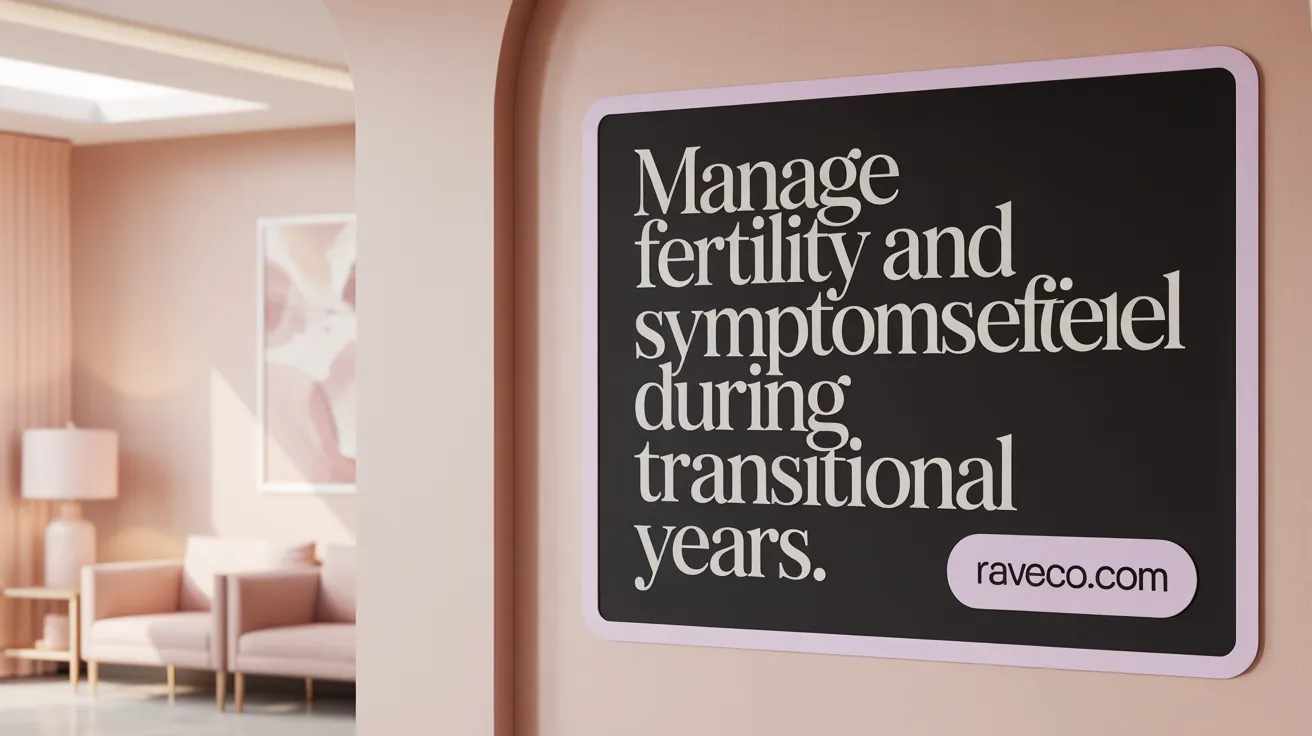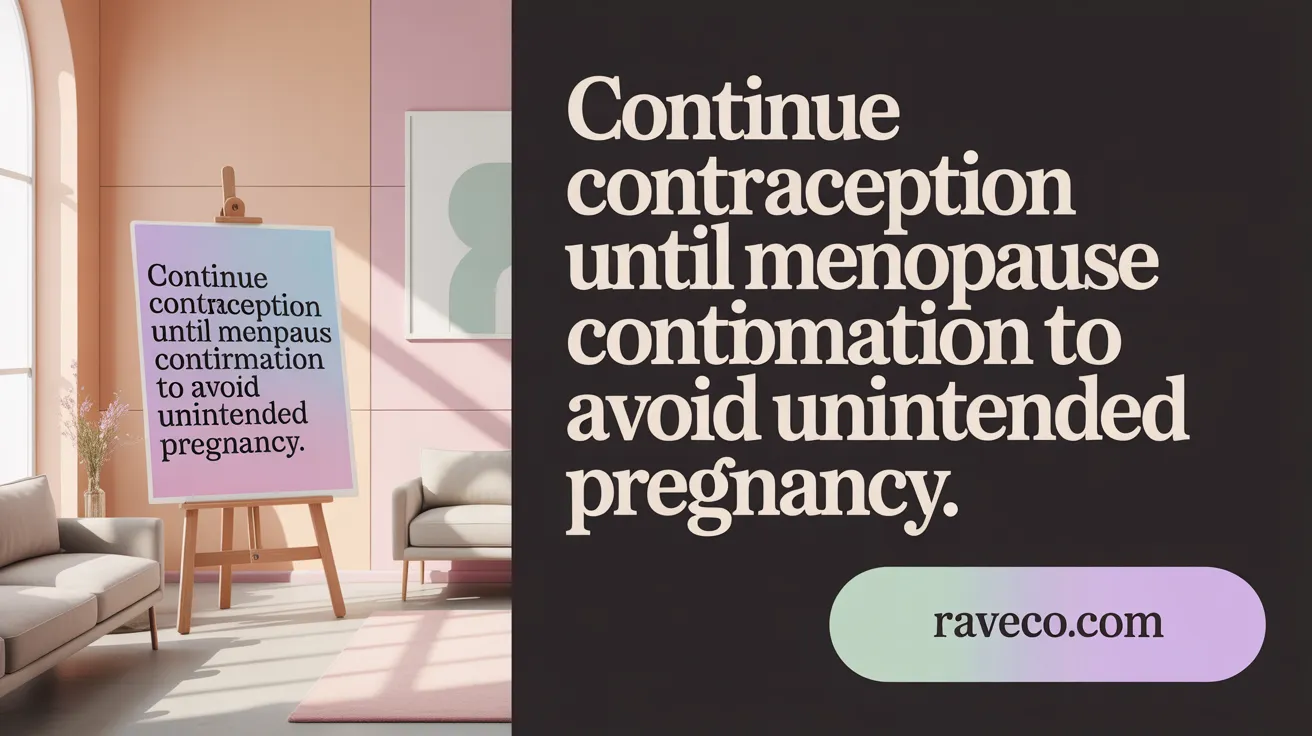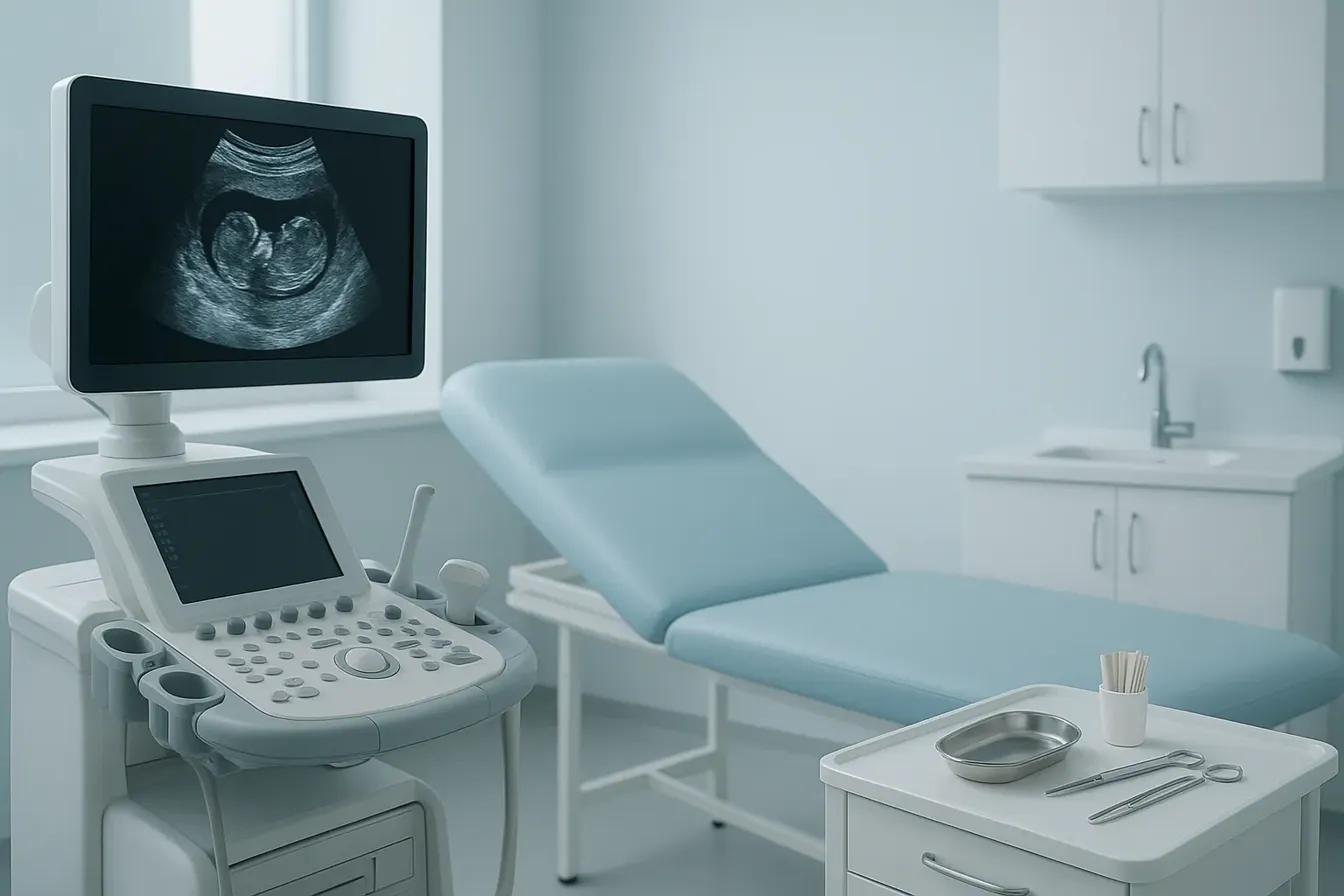Empowering Choices: The Essentials of Birth Control Counseling

Understanding Birth Control Needs After 40
Women over 40 experience unique reproductive health changes with ongoing fertility risks until menopause. With a variety of contraceptive methods available, understanding options tailored to this stage of life is crucial for effective pregnancy prevention and symptom management. This article explores birth control choices for women over 40, highlighting safety considerations, benefits, and how to select the method best suited to individual health and lifestyle.
Fertility and Pregnancy Risks After 40
How does fertility decline with age?
Fertility naturally declines as women age, with a significant drop after the mid-30s and continuing into the 40s. Although fertility decreases, women over 40 are not infertile until menopause, which typically occurs around age 51 but can range from the 30s to the 60s. Ovulation still occurs during perimenopause, the transition before menopause, so pregnancy remains possible (Contraception in women over 40, Contraception during perimenopause, Contraception for women over 40).
Is there a continued risk of pregnancy until menopause?
Yes, pregnancy risk continues until menopause is confirmed. Studies indicate that 10-30% of women aged 40-50 may conceive, and ovulation occurs in the majority of menstrual cycles up to five years before menopause. This ongoing fertility makes contraception important until at least 12 consecutive months without a period have passed, the clinical definition of menopause (Contraceptive protection until menopause, Contraception during perimenopause, Birth control options for women over 40.
What are the risks of pregnancy after age 40?
Pregnancy after 40 carries increased risks for both mother and baby. Common complications include gestational diabetes, hypertension, placenta previa, cesarean delivery, as well as higher rates of spontaneous abortion, chromosomal abnormalities in the fetus, perinatal and maternal mortality. These risks underscore the importance of effective contraception to avoid unintended pregnancies (Contraception for women over 40, Birth control options for women over 40, Birth control over 40).
Why is contraception continuation until menopause important?
Due to the continuing pregnancy risk and the increased health risks associated with pregnancy after 40, continuing contraception until menopause is vital. Guidelines from medical societies recommend maintaining contraceptive protection until menopause or around age 50–55, depending on individual menopausal status. Safe, effective contraceptive options are available, and choosing the right method depends on health, lifestyle, and reproductive goals (Contraception until menopause, Contraception options for women over 40, Hormonal contraception and menopausal transition, Birth control and menopause).
Hormonal Contraceptive Options and Benefits
Types of Hormonal Contraception
Women over 40 have several hormonal birth control methods available, including combined estrogen-progestin pills, patches, vaginal rings, progestin-only pills (mini-pills), injections like Depo-Provera, implants, and hormonal intrauterine devices (IUDs). These options offer flexibility tailored to individual health needs and preferences.
Regulating Menstrual Cycles
Hormonal contraceptives are effective in regulating menstrual cycles, which often become irregular during perimenopause. Combined methods help stabilize bleeding, reduce heavy menstrual bleeding, and can even induce amenorrhea if desired, enhancing quality of life (Hormonal contraception during perimenopause).
Managing Perimenopausal Symptoms
Estrogen-containing contraceptives help alleviate common perimenopausal symptoms such as hot flashes, night sweats, and mood swings. They can also reduce fluid retention and bloating, contributing to overall symptom management in this transitional phase (Birth control and menopause).
Cancer Risk Reduction with Hormonal Contraceptives
Long-term use of hormonal contraceptives, particularly those containing estrogen and progestin, is associated with reduced risks of endometrial, ovarian, and colorectal cancers. These protective effects may persist for years after discontinuation, offering significant health benefits (Birth control pills and cancer risk).
Health Risks Associated with Estrogen-containing Contraceptives
While beneficial, estrogen-containing contraceptives carry increased risks, especially for women over 40. These include a higher likelihood of venous thromboembolism, stroke, and breast cancer, particularly among smokers and those with hypertension or obesity. Progestin-only methods are a safer alternative for women with these risk factors (contraindications for estrogen-containing contraceptives.
Despite risks, modern low-dose estrogen preparations have improved safety profiles. Women over 40 should consult healthcare providers to balance benefits and risks, ensuring personalized and safe contraceptive choices (contraception options for women over 40).
Nonhormonal and Permanent Contraceptive Methods

What nonhormonal birth control options are available for women over 40?
Women over 40 have several effective nonhormonal contraception methods to choose from. The copper intrauterine device (IUD) is a leading hormonal-free option. It provides long-term contraception (up to 10 years) without hormone exposure, making it particularly suitable for those sensitive to hormones or with health concerns like high blood pressure or a history of blood clots. The copper IUD works by creating an environment that is toxic to sperm, thus preventing fertilization.
Barrier methods are also nonhormonal and include male and female condoms, diaphragms, cervical caps, spermicides, and sponges. These methods physically block sperm from reaching the egg and also help protect against sexually transmitted infections (STIs). However, these methods generally have lower effectiveness compared to IUDs and require consistent use to prevent pregnancy.
What are long-acting reversible contraceptives (LARCs) that are nonhormonal?
Among nonhormonal LARCs, the copper IUD is the primary example, offering prolonged, reversible contraception without hormones. It is highly effective, with failure rates under 1% in the first year. LARCs are convenient as they do not require daily attention, improving adherence and efficacy.
What surgical sterilization methods are used by women over 40?
Permanent surgical options include tubal ligation and tubal occlusion. Tubal ligation involves surgically cutting, sealing, or blocking the fallopian tubes to prevent eggs from reaching the uterus. Tubal occlusion procedures, such as hysteroscopic sterilization, place a device to block the tubes without major surgery. These methods are considered for women who are certain they do not want to conceive in the future. Recovery times are generally short, with low complication rates.
How suitable is permanent contraception for women over 40?
Permanent contraception is a common choice for women over 40 who have completed childbearing. Women in this age group are less likely to regret the decision, with sterilization providing a reliable, one-time solution. Health considerations and lifestyle factors are evaluated before recommending permanent methods. Women should consult healthcare providers for personalized advice to ensure this irreversible option aligns with their reproductive goals.
Overall, nonhormonal and permanent contraceptive methods offer women over 40 safe and effective options tailored to their health status and family planning desires.
Choosing Safer Contraception for Women with Health Conditions

Why Are Progestin-Only Contraceptives Recommended for Women with Cardiovascular Risk?
Women over 40 commonly face increased cardiovascular risks such as hypertension, obesity, and history of blood clots. Progestin-only contraceptives — including pills, implants, intrauterine devices (IUDs), and injections — are often recommended because they do not significantly increase venous thromboembolism or arterial event risks. This makes them safer alternatives compared to estrogen-containing methods for women managing such health issues. For more details, see Safety of progestin-only contraceptives.
What Are the Contraindications for Estrogen-Based Contraception?
Use of estrogen-containing contraceptives is generally avoided in women with specific health conditions. These contraindications include a history of deep vein thrombosis (DVT), pulmonary embolism, stroke, certain liver diseases, migraine with aura, uncontrolled hypertension, breast cancer, and smoking over age 35. Such conditions elevate the risk of serious side effects like blood clots, heart attacks, and stroke, making estrogen-free methods a safer choice. Additional information on risks of estrogen-containing contraceptives can be found in the linked resources.
How Is Contraception Customized Based on Individual Health Profiles?
Choosing contraception for women over 40 involves balancing benefits with health risks. Providers evaluate cardiovascular health, smoking status, migraines, and other comorbidities to guide choices. Hormonal contraceptives may be tailored — for instance, favoring low-dose estrogen or opting for progestin-only or nonhormonal methods. This personalized approach helps optimize safety while addressing reproductive goals and symptom management like irregular bleeding or menopausal transitions. For more clinical guidance, see Contraceptive Pearl: Considerations in Contraception During Perimenopause.
Why Is Healthcare Provider Consultation Essential?
Given the complexity of health risks and variety of options, women over 40 should consult healthcare providers to determine the safest and most effective contraception. Professional guidance helps address individual medical history, lifestyle, and preferences. Providers can recommend appropriate screenings, discuss potential side effects, and ensure ongoing monitoring — all key to maximizing contraceptive safety and efficacy in this age group. Additional helpful resources include Birth Control Options for Women Over 40 and Contraception for Older Women.
Contraceptive Use During Perimenopause

What is Perimenopause and How Does It Affect Contraceptive Needs?
Perimenopause is the transitional phase before menopause, typically beginning in a woman's 40s and lasting several years. It is characterized by hormonal fluctuations that cause irregular menstrual cycles and symptoms such as hot flashes, night sweats, mood changes, and vaginal dryness. Despite these irregularities, ovulation often still occurs, meaning pregnancy is possible during this time, so contraception remains essential. For more details, see Contraception during perimenopause and Contraception for older women.
Why Is Contraception Necessary Despite Irregular Cycles?
Even with irregular and unpredictable periods, women are still fertile during perimenopause. Studies show that ovulation can occur in up to 87% of cycles until five years prior to menopause and in about 22% of cycles within the year before menopause. This ongoing fertility underscores the importance of using effective contraception to prevent unintended pregnancies, which carry higher risks in older women. More information is available at Contraception in women over 40 and Birth control options for women over 40.
How Do Hormonal Contraceptives Help With Vasomotor Symptoms?
Hormonal contraceptives, especially combined hormonal contraceptives (CHCs) like pills, patches, and vaginal rings, not only offer reliable pregnancy prevention but also help alleviate common vasomotor symptoms such as hot flashes and night sweats. These contraceptives regulate menstrual cycles and can protect against endometrial hyperplasia and osteoporosis. Natural estrogens in CHCs used during perimenopause tend to have lower risks of blood clots compared to older formulations. Learn more about Hormonal contraception and menopausal transition, Hormonal contraception after age 40, and Birth control during perimenopause.
How Can Contraceptives Manage the Menopausal Transition?
Contraceptive use during perimenopause should be personalized, considering the individual's symptoms, health conditions, and risk factors like hypertension or smoking habits. Progestin-only methods are effective alternatives for those who cannot use estrogen-containing contraceptives, though they may not relieve estrogen-deficiency symptoms. Healthcare providers often recommend continuing contraception until menopause is confirmed, usually by 12 months of amenorrhea or by age 55. Blood tests measuring follicle-stimulating hormone can assist in confirming menopause when hormonal contraception masks natural cycles. For guidance, see Contraceptive pearl considerations during perimenopause and When to stop contraception after menopause.
Proper contraceptive counseling ensures a smooth transition through menopause, balancing effective pregnancy prevention with symptom management and individual health considerations. More information about counseling and tailored contraceptive options can be found at Contraceptive choices for women over 40.
Emergency Contraception for Women Over 40

Types of Emergency Contraception for Women Over 40
Women over 40 have access to emergency contraception options such as emergency contraceptive pills (including levonorgestrel and ulipristal acetate) and the copper intrauterine device (IUD). The copper IUD is particularly effective as it can also serve as ongoing contraception once inserted (effectiveness of copper intrauterine device).
Effectiveness and Timing
Emergency contraceptive pills are most effective when taken as soon as possible after unprotected sex, ideally within 24 hours but up to 3–5 days depending on the pill type. The copper IUD can be inserted within 5 days of unprotected intercourse and is the most effective emergency method available (copper IUD as emergency contraception).
Use as Backup After Contraceptive Failure
Emergency contraception acts as a backup method for women who experience contraceptive failure (e.g., missed pills, condom breakage) or have unprotected intercourse. This is important for women over 40, as fertility, while declining, still poses a pregnancy risk until menopause is confirmed (pregnancy risks for women over 40.
Options Suited for Older Women
Copper IUDs are hormone-free, making them suitable for women who cannot use hormonal contraception due to health concerns like cardiovascular risks or migraines with aura. Emergency contraceptive pills are also generally safe, but women should consult healthcare providers to choose the best option based on health status and timing.
When to Stop Using Contraception After 40

What Is Menopause and How Is It Defined?
Menopause marks the end of a woman's reproductive years, defined clinically as 12 consecutive months without a menstrual period. The average age for menopause is approximately 51, though it can range from the late 40s to the mid-50s (Contraceptive protection until menopause).
Criteria for Ceasing Contraception
Women over 40 are advised to continue contraception until menopause is confirmed to avoid unintended pregnancies. Guidelines suggest stopping contraception:
- At age 50 or 55, if menopause cannot be definitively confirmed by amenorrhea.
- After 12 months of amenorrhea for women over 50.
- After 24 months of amenorrhea for women under 50. These time frames ensure that ovulation and fertility have ceased (Contraception during perimenopause, Contraceptive protection until menopause.
The Role of Hormonal Changes and Amenorrhea
Amenorrhea (absence of menstruation) serves as a clinical marker for menopause. However, hormonal contraceptives can induce withdrawal bleeding, masking true menopausal status. Hormone level tests, such as follicle-stimulating hormone (FSH) measurements above 30 IU/L, may assist in determining menopause, particularly when hormonal contraceptives are in use (Contraception during perimenopause, Very-low-dose birth control pills).
Guidelines by Age and Contraceptive Method
Progestogen-only contraceptives, including implants and intrauterine devices (IUDs), are generally safe up to age 55. Combined hormonal methods (pills, patches, vaginal rings) are typically recommended until around age 50, provided there are no health risks. Nonhormonal options like copper IUDs can be continued until menopause or age 55 (Contraception for women over 40, Birth control options for women over 40, Birth control during perimenopause, Copper intrauterine devices).
Distinguishing Between Contraception and Hormone Replacement Therapy (HRT)
HRT is prescribed to manage menopausal symptoms and does not serve as contraception. Women still need effective birth control until menopause is confirmed even if they are using HRT. Once menopause is reached, contraception can be safely discontinued (Oral contraceptives or hormone replacement therapy, HRT or the pill for perimenopause).
These recommendations underscore the importance of personalized medical advice to determine when contraception can be safely stopped after age 40 (Contraception guidelines for women over 40, Contraception for the mature woman).
Psychosocial and Lifestyle Factors Influencing Contraceptive Choice
How do past contraceptive experiences affect current choices?
Women over 40 often carry complex contraceptive histories. Negative past experiences, including side effects or adverse reactions, can heavily influence their current preferences. These prior encounters shape trust and satisfaction with various methods, prompting many women to favor options that allow more control and fewer intrusive or uncomfortable side effects, as discussed in Contraceptive choices for women over 40 and Contraception for women over 40.
Why is autonomy and satisfaction important in contraception at this age?
Autonomy in selecting birth control empowers women to align choices with their unique health profiles and lifestyles. Satisfaction increases when women feel they have control over their reproductive health, leading to better adherence and reduced regret, especially with permanent methods like sterilization. The importance of autonomy and satisfaction is highlighted in resources like Birth control options for women over 40 and Permanent contraception options.
What role does sexual health and STI prevention play?
Beyond pregnancy prevention, STI protection is vital, especially for women with new or multiple partners. Barrier methods such as condoms remain essential tools for STI prevention, complementing hormonal or nonhormonal contraceptives. Awareness of rising STI rates in this age group urges integration of sexual health strategies alongside contraception, as outlined in Barrier methods of nonhormonal birth control and Contraception for older women including barrier methods.
How are medical risks balanced with lifestyle and preferences?
Women over 40 face evolving health risks such as cardiovascular disease or migraines, influencing contraceptive safety profiles. Providers emphasize individualized assessments to recommend options balancing medical considerations and personal preferences, ensuring effective, safe, and acceptable contraception. Lifestyle factors like smoking and obesity also shape method suitability, highlighting the need for holistic counseling. This balance is covered in Using hormonal contraception after 40, Contraceptive considerations in perimenopause, and FSRH contraception guidelines for women over 40.
Empowering Women Over 40 in Birth Control Decisions
Choosing the right birth control method after 40 involves understanding changing fertility, health risks, and personal preferences. With options ranging from hormonal to nonhormonal and permanent methods, women can find solutions that align with their lifestyle and medical needs while also managing menopausal symptoms and protecting against pregnancy risks. Continuous dialogue with healthcare providers is essential to tailor contraception safely until menopause is fully reached, ensuring informed and empowered reproductive choices in midlife and beyond.





.png)